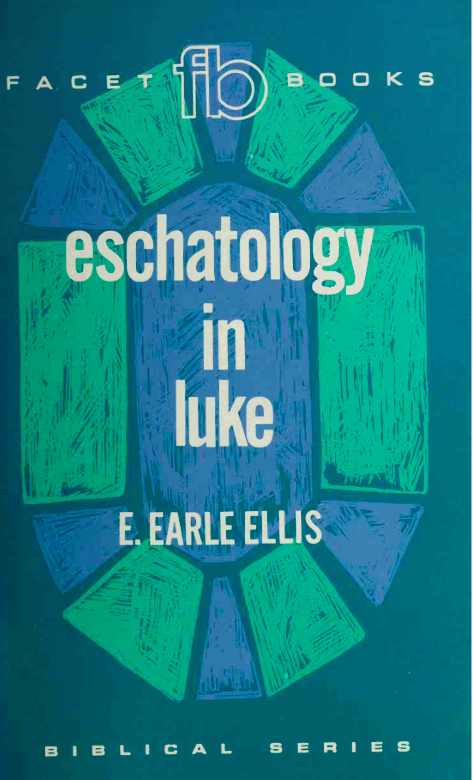The delay-motif in Luke . . . could hardly have originated as a solution inspired by embarrassment or disappointment about Jesus’ continued absence, since it appears before there was time to get embarrassed. (Ellis, Eschatology, 18)
 Has that question been discussed more widely somewhere? My impression is that it is taken for granted that the early church was somehow generally disappointed and confused when Jesus did not return as expected before the generation of the apostles died out. So they began to rewrite history to remove the source of that embarrassment. One example:
Has that question been discussed more widely somewhere? My impression is that it is taken for granted that the early church was somehow generally disappointed and confused when Jesus did not return as expected before the generation of the apostles died out. So they began to rewrite history to remove the source of that embarrassment. One example:
Let me stress that Luke continues to think that the end of the age is going to come in his own lifetime. But he does not seem to think that it was supposed to come in the lifetime of Jesus’ companions. Why not? Evidently because he was writing after they had died, and he knew that in fact the end had not come. To deal with the “delay of the end,” he made the appropriate changes in Jesus’ predictions.
This is evident as well near the end of the Gospel. At Jesus’ trial before the Sanhedrin in Mark’s Gospel, Jesus boldly states to the high priest, “You will see the Son of Man seated at the right hand of power and coming with the clouds of heaven” (Mark 14:62). That is, the end would come and the high priest would see it. Luke, writing many years later, after the high priest was long dead and buried, changes the saying: “from now on the Son of Man will be seated at the right hand of the power of God” (Luke 22:69). No longer does Jesus predict that the high priest himself will be alive when the end comes.
Here, then, is a later source that appears to have modified the earlier apocalyptic sayings of Jesus. (Ehrman, Jesus, 130f)
I have some difficulty with that explanation. It seems to assume that a an embarrassment over the delay is the only possible explanation for Luke’s change. The high priest Mark’s Jesus addresses was long dead, some thirty years before the destruction of the Temple and long before Mark even wrote the gospel. The author of even that earliest gospel (the Gospel of Mark) presumably knew at the time he wrote that trial scene (after 70 CE) that Jesus had failed to come in the way we understand his Second Coming is meant to happen. The question to be asked is not why “Luke” changed “Mark’s” words of Jesus but why “Mark” wrote them at all and what he meant by them.
Similarly with the end of the Gospel of John where the author scotches an apparent rumour that Peter was to live until the return of Jesus. Again, we must ask when that gospel was written. Most scholars, I believe, would say it was written long after the death of Peter when such a rumour would long have ceased to need an explanation. The question to be asked is why it was written at all by one who professed to be an eyewitness to the death of Jesus.
But E.E. Ellis points to some well-known but often overlooked facts that belie the “embarrassment over the delay of the parousia” mindset that was supposed to have overcome the church.
Now I am not denying that in the epistles and gospels we find reasons expressed for a delay until the coming of Christ. What I am less certain about is that these explanations were an attempt to resolve an embarrassment or general disillusionment and confusion over the failure of those expectations to materialize when expected.
Notice Peder Borgen’s more secure explanation for Luke’s changes to Mark:
He holds Luke to be the first to separate the fall of Jerusalem from the eschaton. It is correct that Lk conceives of a span of time between the destruction of Jerusalem and the eschaton. But it must be noted that it is not the delay of the Parousia which created this thinking in terms of epochs but that Lk has only developed and applied an eschatological time scheme, Jewish epoch formulas, already available to Paul in his interpretation of the Gentile mission. (Borgen, 1969, 174)
Borgen is, of course, referring to Romans 11:25 ff: Continue reading “Lack of Evidence that the Delay in the Second Coming was a Problem for the Early Church”
